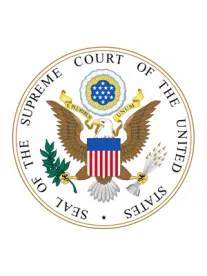The Supreme Court today refused to grant review of the Second Circuit’s restrictive insider-trading decision in United States v. Newman. The Government, through the Solicitor General, had asked the Supreme Court to clarify the nature of the “personal benefit” that a tipper must receive in order to create liability for insider trading. But the Supreme Court declined to take the case.
The personal-benefit requirement evolved from the Supreme Court’s 1983 decision in Dirks v. S.E.C. Dirks had defined the “personal benefit” that constitutes an insider tipper’s breach of duty as including “a pecuniary gain or a reputational benefit that will translate into future earnings.”
There are objective facts and circumstances that often justify such an inference. For example, there may be a relationship between the insider and the recipient that suggests a quid pro quo from the latter, or an intention to benefit the particular recipient. The elements of fiduciary duty and exploitation of nonpublic information also exist when an insider makes a gift of confidential information to a trading relative or friend. The tip and trade resemble trading by the insider himself followed by a gift of the profits to the recipient.
The Second Circuit ruled in Newman held that “the mere fact of friendship, particularly of a casual or social nature,” does not prove receipt of a personal benefit. An inference of personal benefit based on a mere personal relationship between the tipper and the tippee “is impermissible in the absence of proof of a meaningfully close personal relationship that generates an exchange that is objective, consequential, and represents at least a potential gain of a pecuniary or similarly valuable nature. In other words, . . . this requires evidence of a relationship between the insider and the recipient that suggests a quid pro quo from the latter, or an intention to benefit the [latter].” Thus, “the personal benefit received in exchange for confidential information must be of some consequence.”
The Government’s certiorari petition argued that the Second Circuit had “reinterpreted [Dirks’s] holding that an insider personally benefits when he ‘makes a gift of confidential information to a trading relative or friend’ . . . to require ‘proof of a meaningfully close personal relationship that generates an exchange that is objective, consequential, and represents at least a potential gain of a pecuniary or similarly valuable nature.’” According to the Government, Newman’s holding could not “be reconciled with Dirks, which did not require an ‘exchange’ to find liability for a gift of inside information and did not impose amorphous standards for the relationships that can support liability.”
The Government also maintained that Newman conflicts with decisions of other Courts of Appeals, including the Ninth and the Seventh Circuits. In July 2015, the Ninth Circuit held in United States v. Salman that insiders can engage in insider trading if they disclose material nonpublic information with the intent to benefit a trading relative or friend, even if they do not receive a pecuniary gain or other quid pro quo type of benefit in exchange for the disclosures. The Salman case had involved tipping within an extended family, so perhaps inferences can be made about personal benefits in the family context even if those inferences might not be appropriate in other contexts. But Salman might appear to create some tension – if not disagreement – with Newman.
Grants of certiorari are statistically rare (although the odds are better when the Solicitor General seeks review), and the denial of certiorari in Newman can mean any number of things, including:
-
The Supreme Court believed that the Second Circuit’s decision was consistent with Dirks – or at least not unacceptably inconsistent – and saw no need to intervene.
-
Not enough Justices were interested in reconsidering Dirks – either to endorse it or to clarify or alter it.
-
The Court did not believe that the personal-benefit issue had “percolated” long enough and had been considered widely enough for Supreme Court review.
-
The Court believed that, even if the Second Circuit had incorrectly construed the nature of the requisite personal benefit, the judgment would need to be affirmed in any event because the Government had not sought review of Newman’s primary holding: that the remote tippees had not known either whether the original tipper had received a personal benefit or the nature of any such benefit. Without such knowledge, the issue of the requisite type of personal benefit might have seemed merely theoretical and academic.
For now, both Newman and Salman remain on the books, and everyone will need to navigate among both of those decisions and all other relevant precedents that have sought to construe them.



 />i
/>i

